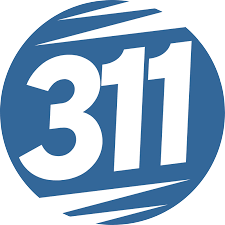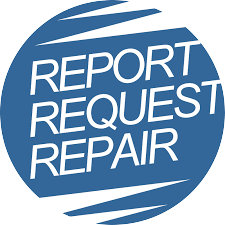Contact
City Prosecutors’ Office
201 Poplar, Room LL-10
Memphis, TN 38103
Phone (901) 636-3475
Fax (901) 636-9797
Hours Monday – Friday
8:00 A.M. to 4:30 P.M.
City prosecutors represent the City of Memphis in prosecuting violations of City Code for traffic, health, and safety pursuant to citations issued by Police, Animal Control Officers and other enforcement personnel. Prosecutors practice in three City Courts at sessions held Monday through Friday at 9:00 A.M. and 1:30 P.M. Prosecutors review matters on the Courts’ dockets, do pre-trial investigation review and witness interviews, and decide on which cases will be prosecuted in City Court. Additionally, prosecutors represent the City of Memphis on cases appealed from City Court to Circuit Court and Appeals Courts.
The City’s Prosecutor’s Office consists of a Chief Prosecutor, three Prosecutors and a Secretary. The Prosecutor’s primary practice is in City Court, which has three divisions: I, II and III. The Prosecutor’s Office, the Courts, and the Court Clerk’s Office are located on the lower level of the Shelby County Criminal Justice Complex. The sessions of court begin at 9:00 a.m. and at 1:30 p.m., Monday-Friday (except certain Holidays).
Jurisdiction
Jurisdiction in City Court is limited to City’s Code of Ordinances violations, which occur within the City limits. This includes virtually all traffic violations (except DUI), prohibited sexual conduct cases, park offenses, dangerous weapons cases, animal offenses and general safety regulations.
Burden of Proof
(How much evidence is necessary?)
All City court proceedings are civil in nature and call for civil penalties, which entail payment of a fine. In order for the City to prevail in a case, the Prosecutor is required to prove that the offense occurred more likely than not. Only in such a case will the defendant be required to pay a penalty for a violation.
Early Payments vs. Mandatory Appearances
Most city ordinance violations may be paid as forfeitures prior to the court date to Traffic Violations Bureau in lieu of appearing in court. The few exceptions where a court appearance is mandatory are listed in Section 21-50 of the Code of Ordinances, as well as on the back of the defendant’s copy of the ticket. Forfeitures are accepted up to 15 days after the issuance of a ticket after which the defendant must make an appearance in court to handle the case.
Continuances
If a person cannot appear in court on the first court date, a continuance must be sought. Continuances are granted in open court only. In order to request a continuance, a defendant must have an attorney, friend or relative appear on the assigned court date and request another date. The new date given will be a report date for the defendant to appear. The defendant is expected to appear on each subsequent court date, unless otherwise instructed by the Judge.
Penalty
The penalty upon a finding of guilt or a plea of guilty is a fine and court costs. Upon hearing a case the Judge sets the fine from $1.00 to $50.00, and the court costs, fines and fees are required by law to be assessed.
Although the maximum fine is $50.00, a one-violation ticket can cost a total of $210.75. Multiple-charge cases are calculated at $50.00 per charge in addition to court costs, fees and taxes. In more serious, aggravated or repeat offender cases, the Judge may assess an additional penalty of $200.00.
Failure to Appear
When a defendant fails to appear on the court date assigned, and no continuance is requested, the Court automatically renders the maximum judgment allowed under the Code of Ordinances. The defendant has ten days to request in open court that the judgment be set aside and rescheduled. Likewise, the defendant has 30 days to request in open court that the judgment be set aside and reduced to a lower, guilty plea. The days are computed consecutively, but if the final day falls on a weekend or holiday, the very next workday will be deemed the final day. After 30 days, the judgment is final and will not be set aside except for a legal cause shown.
Appeals
The defendant may appeal de novo (all evidence is re-presented) to civil Circuit court, if the City Court Judge assessed a fine of $10.00 or more. An appeal must be commenced within 10 calendar days of the conviction or judgment. In addition, a $250.00 bond must be posted.
Answers to the Most Frequently Asked Questions:
- Am I afforded a Public Defender?
Neither the Federal nor State Constitutions require state-afforded representation in civil actions. - Am I required to have an attorney?
NO. Under state law, a person is allowed to represent him/herself in court. Most people who come to City Courts do not have an attorney, although some do. - Can I expect advice from persons in the courtroom?
NO. Although the Prosecutors are attorneys, they are employed by and represent the City. Any advice to a defendant would be a conflict-of-interest. The Judges, who are also attorneys, are sworn to impartiality in fulfilling their role as Judge and cannot give legal advice from the bench. Pursuant to state law, anyone else in the courtroom is not qualified to give legal advice and it would be illegal for them to do so. - Can I demand trial by jury?
NO. Persons charged with violations of the City Ordinances are not entitled to a trial by jury under Federal or State constitutions in City Court. - Can I expect to have an appointment with the prosecutor?
NO. The prosecutors, because of a voluminous caseload and the severity of city cases not warranting discussion, do not schedule appointments. Generally, the Prosecutors will hold a brief discussion of the case in open court on the assigned court date. - I have been served a Summons for Failing to Pay Court Costs; can I negotiate with the Prosecutor?
NO. The underlying case has been prosecuted previously. The judgement is a penalty of the court. A defendant must appear and handle the case with the Judge. The prosecutor has no role in these actions. - I have been served a Subpoena to appear in Court; who is going to pay my parking and my wages for missing work?
The City does not reimburse anyone’s loss of wages for having to appear in court, nor does the City pay for parking. - I have been in a car accident; who is going to pay my damages and/or injuries?
City courts only determine whether or not the ticketed person is in violation of a City Ordinance. The City Judge neither determines fault nor determines who is responsible for any damages or injuries caused by the accident. - Will the ticket and/or accident be counted against me on my driving record?
The State of Tennessee, Department of Safety, (not the Courts) ultimately decides whether or not a ticket from an accident results in points being assessed against the defendant’s driving record. In all other cases, the manner in which the ticket is handled or decided determines whether the ticket will count against the defendant’s driving record.

